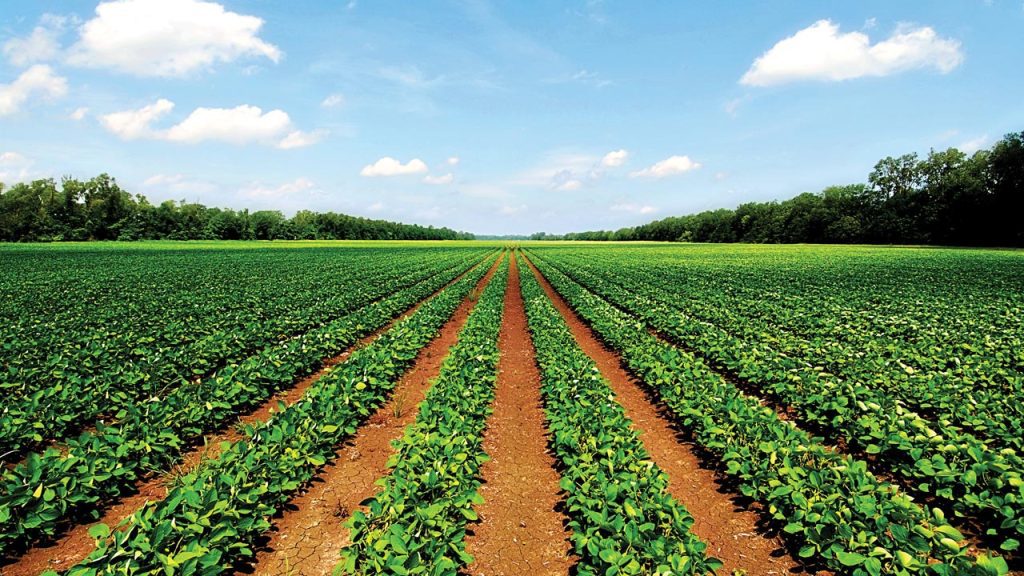Agriculture is the backbone of Nigeria’s economy and plays a crucial role in providing food, jobs, and income for millions of people. Nigeria has a diverse range of agricultural resources, including fertile land, abundant rainfall, and a wide range of crops and livestock.
Sasu (2022), in a publication titled, ‘Nigeria: Agriculture contribution to GDP 2019-2021’, revealed that the country’s agriculture sector played a pivotal role in the country’s economy, contributing significantly to its GDP. Between July and September 2021, the agriculture sector accounted for nearly 30% of the total GDP, marking a notable increase of approximately six percentage points compared to the previous quarter. This sector’s importance in Nigeria’s economy is underscored by the fact that it provides livelihoods for a substantial portion of the population, in contrast to the oil industry, which benefits only a limited segment of the population.
The landscape
Nigeria’s agricultural landscape is diverse and includes a wide range of crops, livestock, and fisheries. According to the National Root Crops Research Institute, Nigeria is the largest producer of cassava and yams in the world, and also produces significant quantities of rice, maize, sorghum, millet, and cowpeas, as reiterated by the Director and Head, Crop Research Operations Department, Dr. Nnamdi Eke-Okoro. The livestock sector is also significant, with Nigeria being home to over 19 million cattle and 72 million goats and sheep.
Over the past decade, Nigeria has made significant strides in improving its agricultural productivity and boosting food security. The government has implemented a range of policies and programmes aimed at supporting small-scale farmers, improving access to inputs and credit, and increasing the use of new technologies. These efforts have helped to aid crop yields, increase the availability of food, and reduce poverty and hunger.
Challenges facing Nigerian agriculture
Despite the progress that has been made, Nigerian agriculture still faces a range of challenges. Some of the most significant issues include climate change and extreme weather events, which can damage crops and reduce yields, poor infrastructure, including roads, irrigation systems, and storage facilities, inadequate access to credit and financing, particularly for small-scale farmers, inefficient supply chains, which can result in high post-harvest losses and low returns for farmers, and insufficient investment in research and development, which is needed to develop new crop varieties and improve productivity.
The future of Nigerian agriculture
In the years ahead, Nigerian agriculture will continue to play a crucial role in the country’s economic development. Achieving these goals will require continued investment in the sector, including greater support for small-scale farmers and investments in research, infrastructure, and technology.
Areas for future development in Nigerian agriculture include:
1. Increased focus on value-added products: While Nigeria is a major producer of raw agricultural goods, there is significant potential to add value to these products through processing and manufacturing. This could help to create new jobs and increase the profitability of the sector.
2. Expansion of export markets: Nigeria currently exports relatively small quantities of agricultural products, but there is significant potential to expand into new markets. This could help to diversify the country’s economy and boost foreign exchange earnings.
3. Promotion of sustainable practices: As climate change becomes an increasingly pressing issue, it will be important for Nigerian agriculture to adopt sustainable practices that reduce greenhouse gas emissions and protect natural resources.
4. Greater investment in youth engagement: With over 60% of Nigeria’s population under the age of 25, engaging young people in agriculture will be crucial for the sector’s long-term success. This could involve providing training and support for young farmers, as well as creating opportunities for entrepreneurship and innovation.
Generally, while Nigerian agriculture faces a range of challenges, there are also many opportunities for growth and development in the years ahead. By continuing to invest in the sector and support small-scale farmers, Nigeria can build a more resilient and prosperous agricultural landscape that benefits millions of people across the country.
1. Integration of technology: The use of technology in Nigerian agriculture is still relatively low, but there is potential for significant gains in productivity and efficiency. This could include the adoption of precision farming techniques, the use of drones for crop monitoring, and the development of mobile applications to improve access to information and markets. Investing in these technologies could help Nigerian farmers to overcome some of the challenges they face and increase their competitiveness in domestic and international markets.
2. Strengthening of institutions: Effective institutions are critical for ensuring that policies and programmes aimed at supporting agriculture are implemented effectively. Nigeria’s agriculture sector would benefit from greater investment in institutional capacity-building, including training for government officials and other stakeholders involved in agriculture.
3. Improvement of market access: Access to markets remains a major challenge for many Nigerian farmers, particularly those in remote areas. Improving transportation infrastructure and increasing market linkages could help farmers to reach new customers and obtain better prices for their products.
4. Diversification of crops: While Nigeria is already a major producer of several crops, there is potential to diversify into new crops that may be more resilient to climate change or have higher value on domestic or international markets. Encouraging farmers to experiment with new crops could help to build a more diverse and sustainable agricultural landscape.
5. Collaboration between public and private sectors: Finally, collaboration between public and private sectors will be critical for achieving Nigeria’s agricultural growth targets. The private sector has an important role to play in driving innovation, investing in infrastructure, and creating jobs, while the government can provide support through policies, regulations, and incentives.
Nigerian agriculture has come a long way over the past decade, but still faces significant challenges as well as opportunities for growth and development. Therefore, focusing on areas such as value-added products, export expansion, sustainability practices, youth engagement, technology integration, institution strengthening, market access improvement, crop diversification and public-private sector collaboration; Nigeria can build a more prosperous agricultural landscape that benefits millions across the country while contributing significantly towards its economic development goals.



